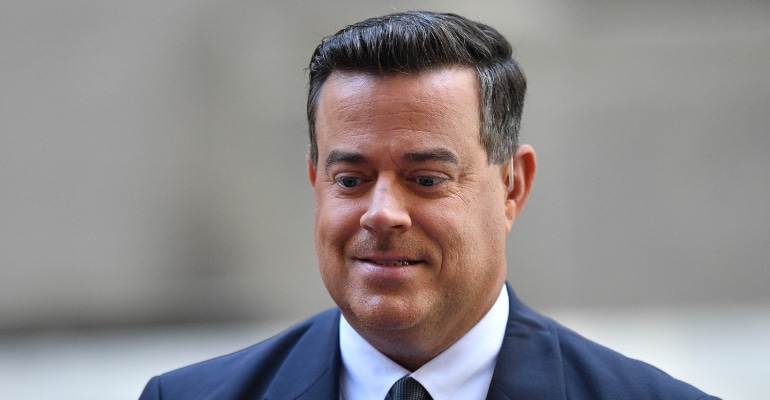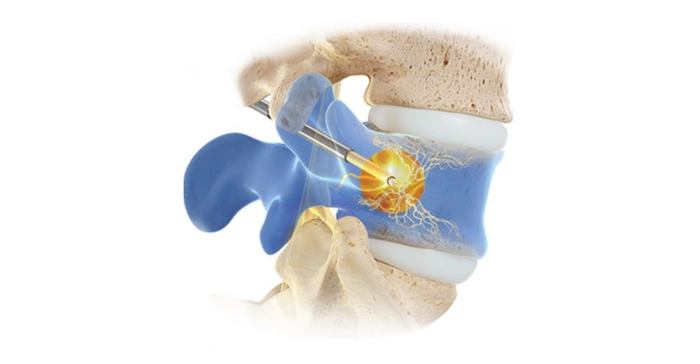Carson Daly Put Relievant on the Map, Now Boston Scientific Wants to Buy It
Boston Scientific has made an $850 million bid for the company that developed a breakthrough back surgery that Carson Daly had in 2022.
September 19, 2023

In June 2022, "Today Show" host Carson Daly shared his experience with a breakthrough back surgery called the Intracept procedure. Now, Boston Scientific wants to acquire Relievant Medsystems, the company that developed the Intracept procedure.
Daly was in a snowmobile accident in 1997 in Aspen, CO, at age 24 while he was on the road with MTV. He suffered chronic low back pain for 25 years because of a T12 compression fracture he sustained during the accident.
Relievant's minimally invasive outpatient procedure is FDA cleared to treat vertebrogenic pain. During the procedure, the doctor uses a probe to deliver targeted radiofrequency energy to stop the basivertebral nerve from carrying pain signals to the brain. Patients usually go home the same day, and most experience minimal post-op pain and generally quick recovery times.

"Carson was back on the 'Today Show' on Wednesday. He probably could have even gone back the next day," Daly's physician, Kiran Patel, MD, told MD+DI in an interview last year. Patel is the director of neurosurgical pain at Lenox Hill Hospital in New York, NY.
Boston Scientific has agreed to pay $850 million in cash to acquire Relievant, plus undisclosed payments contingent on sales performance over the next three years. The deal is expected to close in the first half of 2024. Relievant is on track to generate more than $70 million in 2023 and to deliver year-over-year growth more than 50% in 2024.
Patients who are ideal candidates for the Intracept procedure are those who have lower back pain that does not radiate into the leg, have had pain for at least six months, and who have failed conservative management options such as physical therapy, muscle relaxers, chiropractic care, etc. Like in Daly’s case, these patients also have very specific findings that show up on MRI, Patel said.
“Prior to this procedure, there really were no options for patients who had pain due to vertebrogenic pain, when the cause was the bone itself,” Patel said. “Really, these patients were often fused, and didn’t do well with the fusion surgery because it didn’t really take care of the nerves that were causing the pain in their bone.”
Carson Daly is one of hundreds of patients that Patel has performed the Intracept procedure on. When asked about the learning curve involved with the procedure, she said it wasn’t that steep because it builds upon a skill set that she already has from performing other types of back surgery.
"I was very pleasantly surprised at how dramatic the results have been [with the Intracept procedure]," Patel said. "On the face of it, the science made sense to me, but to see patients that I've had in my practice – some for many years – to see the dramatic improvement, it's really been astonishing. I get excited for the patients when I get a new MRI for them and they have Modic changes and it correlates to pain with bending, lifting, sitting, or whenever they're active, and they've had pain for six months and they've failed more conservative treatments. I get really excited for these patients because I know that I have a really good treatment option for them."
The primary barrier to adoption for the Intracept procedure has been a lack of insurance coverage. Even with excellent health insurance, Daly had to go through an appeal process that took over four months. For a lot of Patel's patients, it takes anywhere from six months to eight months, and even then, it might get denied.
Boston Scientific's acquisition of Relievant has the potential to expand access to the procedure for people who need personalized treatment.
″Upon close, we look forward to working with the Relievant team to explore opportunities to bring this high-growth therapy to a wider population of people living with chronic low back pain," said Jim Cassidy, president of Boston Scientific's neuromodulation business.
About the Author(s)
You May Also Like



.png?width=300&auto=webp&quality=80&disable=upscale)
